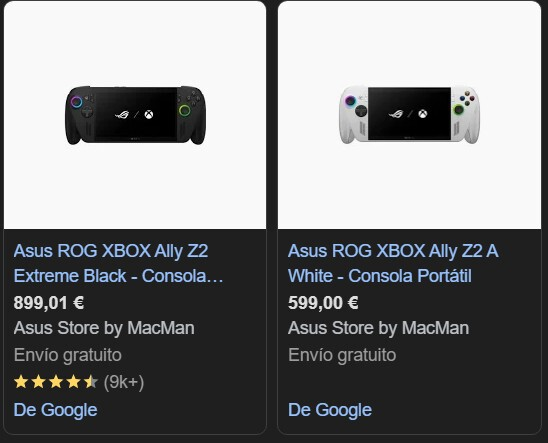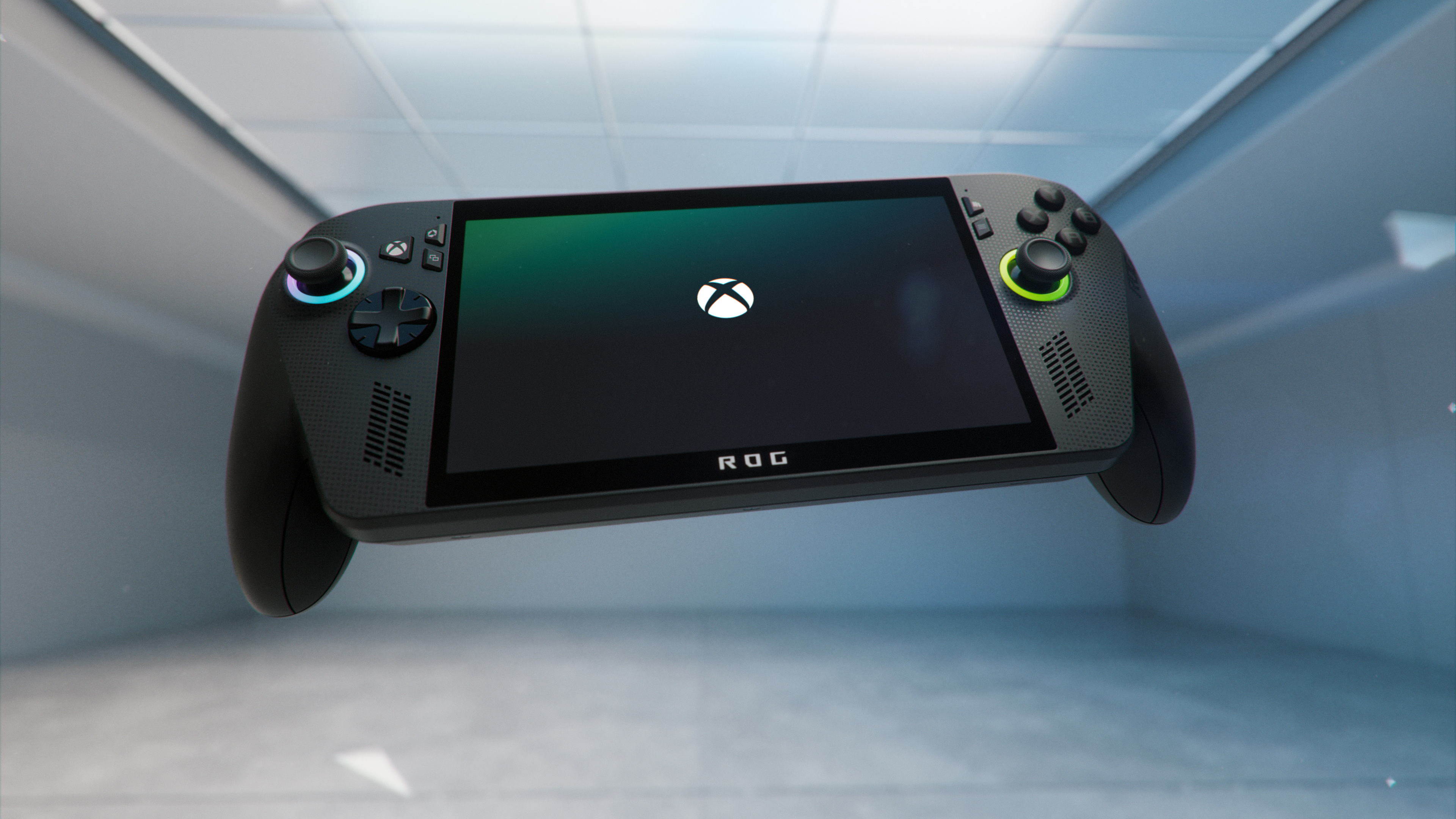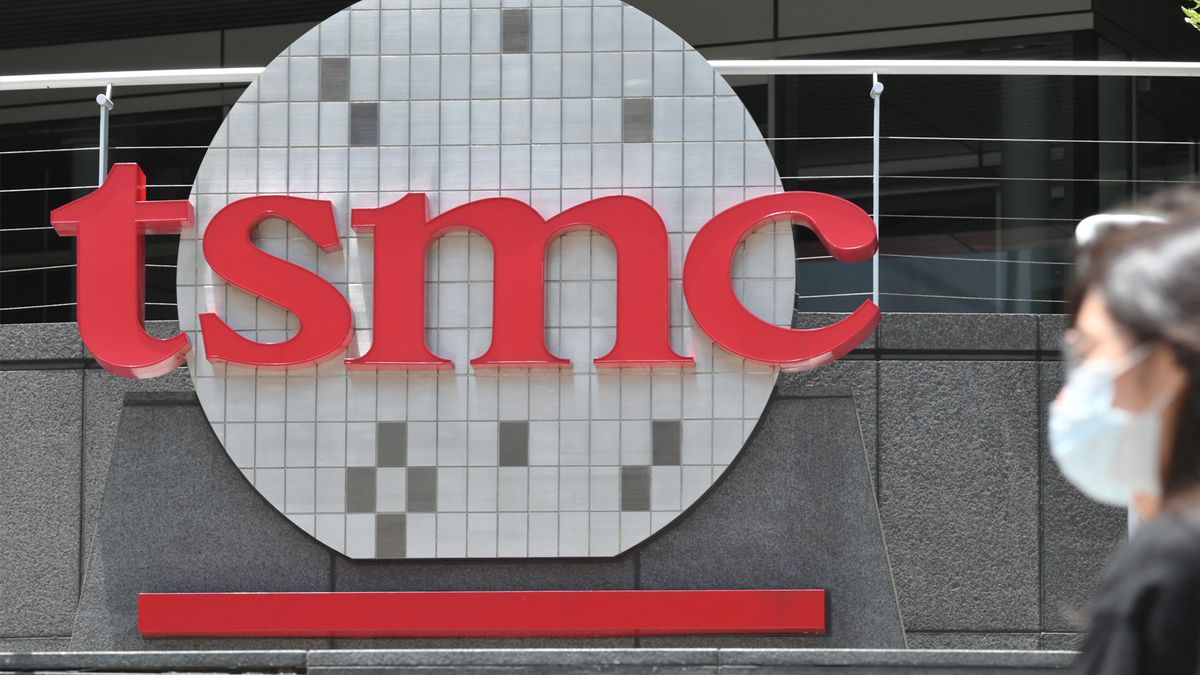Leaked prices for the ROG Xbox Ally and ROG Xbox Ally X hint that Asus may keep its upcoming Xbox-branded handhelds in the same ballpark as existing ROG handheld offerings. Listings spotted by 3D Juegos indicate that the ROG Xbox Ally will launch at €599 (approximately $700), while the higher-end ROG Xbox Ally X could be priced at €899 (around $1,050).
These line up closely with the current ROG Ally range in Europe, where pricing is currently between €500 and €700, depending on the chip variant, while the ROG Ally X retails for around €900. It is important to note that the final retail price isn’t always a direct conversion across regions, which means U.S. pricing will likely be different, as manufacturers often need to adjust for taxes, import costs, and market response. Asus hasn’t officially confirmed any details yet, so these early listings are more or less placeholders.
Announced early last month, the ROG Xbox Ally and ROG Xbox Ally X handheld consoles mark the first official collaboration between Asus and Microsoft to launch Xbox-branded hardware. Both models feature a redesigned chassis with contoured grips similar to the Xbox controller, along with impulse triggers for added haptic feedback. According to Asus, the addition of Xbox controller ergonomics makes them the most comfortable handhelds yet, despite being slightly thicker and heavier than earlier models.

The ROG Xbox Ally X is the high-end variant, powered by AMD’s new Ryzen AI Z2 Extreme processor with 8 cores, 16 RDNA 3.5 graphics cores, and 24GB of LPDDR5X-8000 memory. It also packs a 1TB SSD, Wi-Fi 6E, Bluetooth 5.4, USB 4 ports, and an 80Wh battery. Meanwhile, the standard Xbox Ally is a more affordable model, equipped with a slower Ryzen Z2 A chip, 16GB LPDDR5X-6400 RAM, a 512GB SSD, and a smaller 60Wh battery. Both devices come with the same 7-inch full-HD 120Hz VRR IPS display from the Ally X and include a new dedicated Xbox button for quick access to the Game Bar.
Swipe to scroll horizontally
Specifications | ROG Xbox Ally | ROG Xbox Ally X |
Display | 7-inch (1080p) IPS, 500 nits, 16:9 120Hz refresh rate FreeSync Premium Corning Gorilla Glass Victus + DXC Anti-Reflection | 7-inch (1080p) IPS, 500 nits, 16:9 120Hz refresh rate FreeSync Premium Corning Gorilla Glass Victus + DXC Anti-Reflection |
CPU | AMD Ryzen Z2 A | AMD Ryzen AI Z2 Extreme |
Memory | 16GB LPDDR5X-6400 | 24GB LPDDR5X-8000 |
Storage | 512GB M.2 2280 SSD | 1TB M.2 2280 SSD |
I/O | -2x USB 3.2 Gen 2 Type-C with DisplayPort 2.1 / Power Delivery 3.0 -1x UHS-II microSD card reader -1x 3.5mm Combo Audio Jack | -1x USB4 Type-C with DisplayPort 2.1 / Power Delivery 3.0, Thunderbolt 4 compatible-1x USB 3.2 Gen 2 Type-C with DisplayPort 2.1 / Power Delivery 3.0 -1x UHS-II microSD card reader -1x 3.5mm Combo Audio Jack |
Wireless connectivity | Wi-Fi 6E (2 x 2) + Bluetooth 5.4 | Wi-Fi 6E (2 x 2) + Bluetooth 5.4 |
Battery | 60Wh | 80Wh |
Operating system | Windows 11 Home | Windows 11 Home |
Weight | 670g | 715g |
Expected Price* | €599 (approx $700) | €899 (approx $1,050) |
Running on Windows 11, both handhelds are expected to boot directly into an Xbox-style interface to deliver a more streamlined, console-like experience. Users will still have full access to Windows, making it possible to install third-party launchers like Steam, Epic Games, and others.
Speaking of which, Microsoft recently announced in a blog post that it’s testing a new version of the Xbox app for Windows with support for aggregated game libraries. This update will be rolled out to Windows users as a preview and will eventually roll out to the ROG Xbox Ally and Ally X later this year. The updated app will let users view installed titles from supported third-party storefronts such as Battle.net, EA, and Riot Games, with support for more stores like Steam and GOG likely to arrive at a later stage.
Follow Tom's Hardware on Google News to get our up-to-date news, analysis, and reviews in your feeds. Make sure to click the Follow button.

 4 months ago
41
4 months ago
41






 English (US) ·
English (US) ·